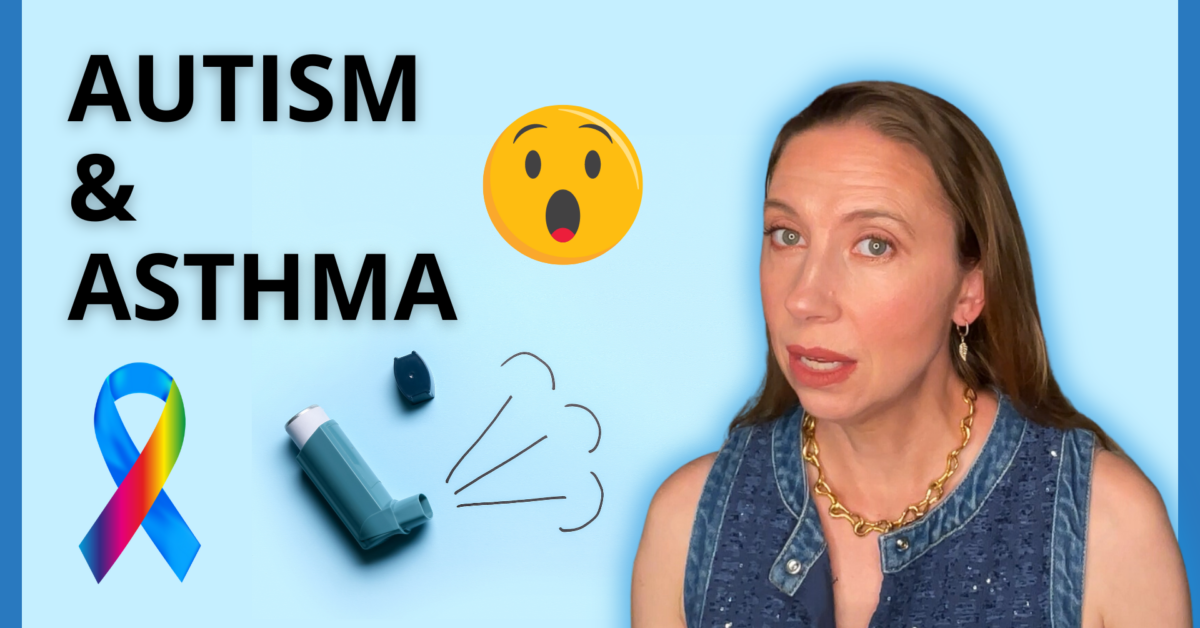Today, we have an important topic to discuss. Let’s talk about the surprising link between autism and asthma. Yes, that’s right. So stick around as we delve into this unexpected connection.
The connection between autism and asthma
Now, let’s kick things off by introducing you to the intricate relationship between autism and asthma. These two conditions may seem unrelated, but they share a more complex connection than you might think.
Research suggests that individuals with autism have higher rates of asthma compared to the general population. Several studies have found a prevalence of asthma among individuals with autism, ranging from 10% to 20%, whereas the prevalence in the general population is typically around 8%, and there’s references.
Challenges faced by asthmatic people with autism
Individuals who have both autism and asthma face unique challenges.
Communication difficulties
One of the major hurdles is communication difficulties. Individuals with autism might have difficulty expressing their symptoms clearly. They may not be able to articulate the feelings of shortness of breath or chest tightness, wheezing. Those are all weird experiences. If speaking is difficult, those might not be buttons on an AAC device. They would have no way of communicating what they’re experiencing. Instead, they might exhibit changes in their behavior, such as increased irritability, withdrawal, or nonverbal signs of discomfort. Imagine trying to express your discomfort or pain when verbal communication is a struggle. It’s a tough situation that many individuals navigate daily.
Heightened sensitivity
People with autism also often have heightened sensory sensitivities. They may react strongly to the sensation of breathing difficulties, leading to anxiety or panic, or even their sense of smell can be very strong, so they get triggered for an asthma episode when others don’t. This can sometimes make it hard to distinguish between an asthma attack and sensory overload. The situation can start as sensory overload, then also be an asthma attack as well. Both can happen at the same time, which can make things even more difficult.
Symptoms of autism and asthma
Now, let’s explore the symptoms of autism and asthma. These conditions can overlap and manifest in various ways, making it challenging to identify and address them effectively.
Overlap between asthma and autism symptoms
Here’s symptoms of asthma that can overlap and look like autism symptoms.
- Shortness of breath that might look like a panic attack or anxiety.
- Chest tightness that might look like a person who doesn’t like to wear shirts or have anything heavy on top.
- Coughing, that could actually be a tic.
- Rapid breathing, that could be stimming.
- Difficulty sleeping, that’s definitely autism.
- Fatigue. That also could be mitochondria issues, which is also related to a lot of autism symptoms.
- Instead of verbal complaints, children with autism might show behavioral changes such as agitation, unusual postures, repetitive behaviors, when they’re actually experiencing asthma symptoms.
Why is asthma more prevalent in autistic population?
But why? Why does asthma seem to occur at a higher rate in those with autism? It’s thought to be a combination of genetic, immunological, environmental, and biological factors.
- For genetic factors, certain genetic variations are linked to immune function and inflammation.
- Immune system dysregulation. Both asthma and autism have been associated with abnormalities in the immune system. Many times our immune system is just overwhelmed.
- Environmental factors, various environmental exposures during critical periods of development, such as prenatal exposure to the pollutants, prenatal exposure to different viruses. It’s also where somebody lives, what air they are breathing, what they are eating. All of that.
- Biological mechanisms, things like oxidative stress, mitochondrial dysfunction, have been proposed as underlying mechanisms for both asthma and autism.
- The gut microbiome. Research suggests that the gut microbiome may play a role in both autism and asthma.
Essential strategies and tips for managing autism and asthma
It is important and imperative to treat asthma from a conventional medicine perspective first. Get it under control. Learn the triggers. Get on medication to reduce or stop the asthma attacks so that your child cannot have those stressful experiences. You too, right? Then both of you can literally just catch your breath. That’s really important. Have a solid footing. Then use functional medicine to understand the root causes.
Confused by all the information about autism? I’ve got you. Click this link to see how we can work together. Let me break down the science and provide you with clear actionable steps to make your path forward easier.
Conclusion
In summary, understanding the dual challenges faced by individuals with autism and asthma is critical. By recognizing the unique needs and complexities of each condition, we can better offer support and enhance overall well-being for those with autism and asthma. As a parent, if your intuition is telling you, this also seems like asthma, follow that intuition. Not all behaviors are just autism. It can also be asthma.




